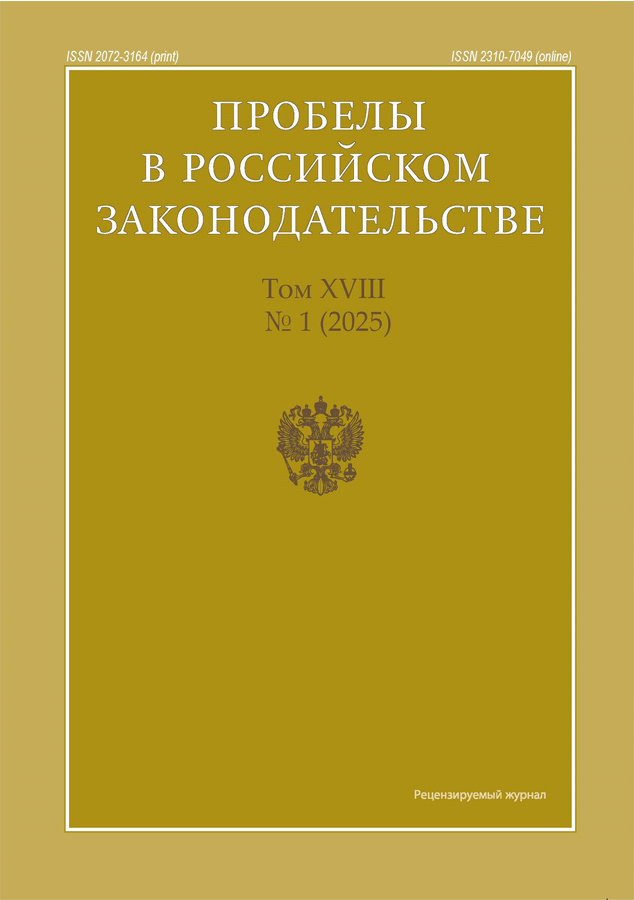Framework contract: mechanism and legal nature of incorporating general terms into individual contracts
- Autores: Khuzziatov A.А.1
-
Afiliações:
- Peoples’ Friendship University of Russia named after Patrice Lumumba
- Edição: Volume 18, Nº 1 (2025)
- Páginas: 93-100
- Seção: Private Law (Civil) Sciences
- URL: https://journals.eco-vector.com/2072-3164/article/view/677717
- DOI: https://doi.org/10.33693/2072-3164-2025-18-1-93-100
- EDN: https://elibrary.ru/RKLJAN
- ID: 677717
Citar
Resumo
The article analyses a common type of framework contracts, in which general parameters of future transactions are agreed upon, while their essential terms are left open for further negotiations. The main question is whether such framework contracts have their own legal effect and, if so, what kind of legal effect they have. The author argues that although positive theories often turn out to be unsound, the idea that the agreement in question is completely devoid of legal force cannot be accepted either, as it does not explain its effect enshrined in Clause 2 of Article 429.1 of the Civil Code of the Russian Federation i. e. the formation of a common set of dispositive terms included in local contracts by default. The reason for the described difficulty, as it is argued in the article, is that the standard conceptual apparatus of civil law is not able to adequately describe the essence of the studied agreement. An appeal to the theory of fact-states and a preliminary explanation of the mechanics of the framework contract's action allow to give the phenomenon a proper explanation.
Texto integral
Sobre autores
Arthur Khuzziatov
Peoples’ Friendship University of Russia named after Patrice Lumumba
Autor responsável pela correspondência
Email: a.a.khuzziatov@mail.ru
Código SPIN: 8795-7940
postgraduate student
Rússia, MoscowBibliografia
- Belov V. A. Classification of Legal Facts: A Top-Level Problem // Bulletin of Economic Justice of the Russian Federation. 2022. No. 8. Pp. 63–92.
- Belov V. A., Dudchenko K. V. «Contracts on Contracts» (Preliminary and Framework Contracts, Option to Conclude a Contract) // Legislation. 2016. No. 2. Pp. 9–18.
- Braginsky, M. I. Vitryansky V. V. Contract Law. General Provisions. 3rd ed., stereotype. Moscow: Statut, 2001. Vol. 1. 848 p.
- Civil Law: Textbook: in 4 vols. Vol. 3 / Ed. Dr. of Law, Prof. E. A. Sukhanov. 3rd ed., revised and enlarged. Moscow: Statut, 2023. 524 p.
- Contract Law (General Part): Article-by-Article Commentary on Articles 420–453 of the Civil Code of the Russian Federation [Electronic Edition, Version 2.0]. Ed. A. G. Karapetov. Moscow: M-Logos, 2020. 1425 p.
- Efimova L. G. Framework (Organizational) Contracts.Moscow: Wolters Kluwer, 2006.104 p.
- Isakov V. B. Legal Facts in Soviet Law. Isakov V. B.Moscow: Legal Literature, 1984. 144 p.
- Kozhokar' I. P. Normative Activity: From Legal Technique to Legal Design and Engineering. I. P. Kozhokar', E. E. Frolova. Journal of Russian Law. 2024. Vol. 28, No. 8. Pp. 5–24.
- Kozhokar' I. P., Rusakova, E. P. Legal Technique for Realization of Rights and Digital Justice. I. P. Kozhokar', E. P. Rusakova. Bulletin of Perm University: Juridical Sciences. 2023. No. 59. Pp. 121–141.
- Krasheninnikov E. A., Baigusheva Y. V. Conclusion of a Contract. Bulletin of the Supreme Arbitration Court of the Russian Federation (VAS RF). 2013. No. 5. Pp. 60–104.
- Pandects: Obligatory Law. Translated from German: Reviewed and Approved with the 7th Edition of the Original Text. Vol II: Issue III. Dernburg G.; Translated under the editorship of Sokolovsky P.; Ed.: Worms A. E., Wulfert I. I. 3rd Russian ed. Moscow: Printed by A. I. Snegireva, 1911. 412 p.
- Poduzova E. B., Organizational Contracts in Civil Law. E. B. Poduzova. Moscow: Prospekt, 2014.84 p.
- Rozhkova M. A., Legal Facts in Civil Law. Appendix to the Journal «Economy and Law». 2006. No.7. 78 p.
- Stal'gevich A. K., Some Controversial Issues in the Theory of Socialist Legal Relations. Soviet State and Law. 1957. No. 2. Pp.23–32.
- Tatarenko V. I., Framework and Subscriber Contracts in Civil Law: Dissertation… for Candidate of Juridical Sciences: 12.00.03. Tatarenko Vitaly Ivanovich; Place of Defense: FGBU VO «Russian State University of Justice». 2018. 189 p.
- Trezubov E. S., Evolution of Suretyship in Roman and Russian Obligatory Law. E. S. Trezubov, E. P. Rusakova. Bulletin of Omsk University. Series: Law. 2020. Vol .17, No.1. Pp .82–93.
- Frolova E. E., Ways of Will Expression by Parties in Conditions of Digital Transformation: Current Trends in Law Enforcement. E. E. Frolova, A. M. Berman. Law. Journal of Higher School of Economics. 2024. No. 3. Pp.57–83.
- Khuzzyatov A. A., Framework Contract (Contract with Open Terms). Petersburg Civilistics 2.1: Collection of Works by Graduates of the Department of Civil Law at St.Petersburg State University [Electronic Edition]. Compiled and edited by A. A. Pavlov. Moscow,2020. Pp .284–304.
- Yurenkova O. S., Special Contractual Structures for Providing Subjective Rights to Demand Conclusion and Execution of Civil-Law Contracts in the Future.Dissertation … for Candidate of Juridical Sciences: 12.00.03. Yurenkova Olesya Sergeevna; Place of Defense: Moscow Academy of Economics and Law. Moscow, 2014. 201 p.
Arquivos suplementares









